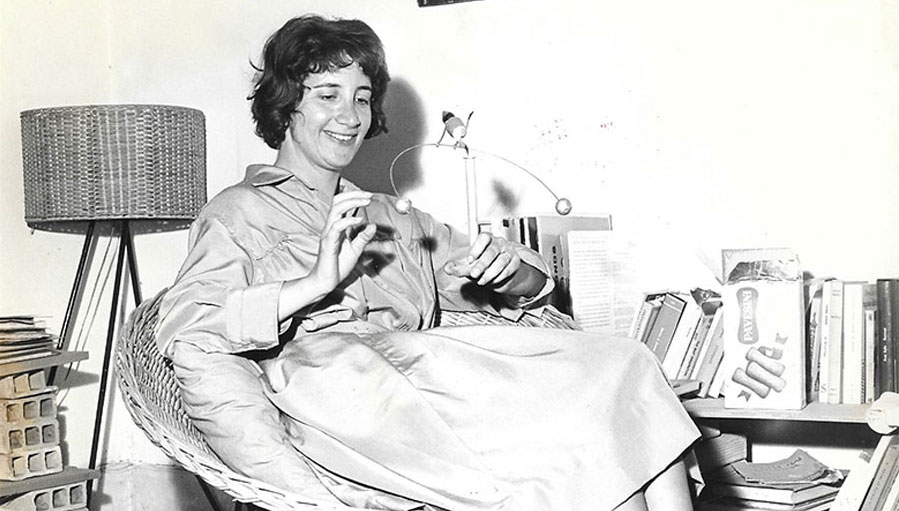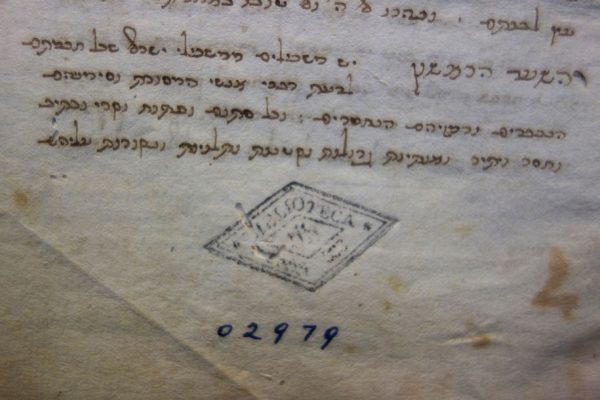Re-Covered: The Sky Falls by Lorenza Mazzetti
Mazzetti left Italy for London in the early fifties, where she ended up at the Slade. As she explains, both in her London Diaries (which were published in the original Italian in 2014, and as an English edition four years later, translated by Melinda Mele) and Because I’m a Genius!, she turned up at the art school the day before term began and demanded she be allowed to enroll. “I’m a genius!” she told Sir William Coldstream, the school’s principal, convincing him to bend the rules for her. It was he who later introduced the same willful young woman to Denis Forman, then head of the British Film Institute. She had borrowed, without permission, the school film society’s equipment in order to make her first feature, and brazenly told the lab that developed the film to charge it direct to the school. Sir William came up with an ingenious plan to see if Mazzetti deserved to be reported to the police for theft: he would screen K for an audience of her fellow students, and if they applauded her efforts, he’d excuse her questionable methods. Not only were her peers bowled over by her work, but Forman—whom Sir William had also invited to the screening—was so impressed by Mazzetti’s raw talent that he immediately agreed to finance her next feature. Together was the first publicly funded film made in the UK by a woman director.
After taking Together to Cannes in 1956, Mazzetti was on course for a brilliant career in the UK. And yet, she decided to return to Italy. Back home, she realized that she was finally ready to “tell the world what I witnessed.” Once she’d found Penny’s voice, she wrote The Sky Falls in only twenty days. She sent it to publishers, but to no avail, until, that is, the famous neorealist screenwriter Cesare Zavattini—who’d greatly admired Together—took the manuscript direct to Attilio Bertolucci, the editorial director at the Garzanti publishing house. Bertolucci published the novel with an introduction by Zavattini, and submitted it for the Viareggio Prize.
Mazzetti worked on a few Italian films and TV productions, but her interest in the medium was waning. She published a sequel to Il cielo cade in 1963, Con rabbia—translated into English, by Isabel Quigly, as Rage (1966)—which picks up Penny and Baby’s story after the war, in which, now adolescents, they’re living in Florence. Read as a standalone work, The Sky Falls is potent enough—“a brilliant tour de force, charming and harrowing,” described the Spectator. But the “flinty anger” that critic Penelope Mortimer, writing in the Daily Express, identified beneath the surface of the first book explodes to the fore in Rage. Penny is struggling with all the usual torments of adolescence—an “awful age when you know everything wrong and at second hand!” she wisely surmises, and one made all the more complicated for a woman in what’s very much a man’s world: a “prisoner of my sex,” the “prey” of rapacious men, “[a]n object to chase through the dark streets, to impress with their male voices, to debase after they’d fondled it, to despise after they’d used it. An object to look at, to wink at, to pierce or to strip with their eyes. An object that belonged to them”—but she’s also dealing with the trauma of her past. If The Sky Falls is a child’s dream-turned-nightmare, Rage is more like a feverish hallucination from which Penny is unable to escape. With its intense focus on interiority, often at the expense of plot, it’s admittedly less accessible than The Sky Falls. As a portrait of a traumatized and confused adolescent, however, it’s masterful. Her straightforward depiction of everyday sexual harassment will resonate particularly with contemporary readers, I’m sure. Mazzetti also penned a third volume in this autobiographical series, Mi può prestare la sua pistola per favore? (1969), but it’s yet to be translated into English.
For a time, later in life, Mazetti wrote a weekly column for the magazine Vie Nuove, in which she interpreted readers’ dreams (with the help of a Jungian psychoanalyst), but her main interest, somewhat unexpectedly, became puppetry. She set up a children’s puppet theatre at Rome’s Del Satiri Theater. An article in the New York Times in 1988 describes one of her performances, the tale of an orphaned prince and princess, who by the end of the show have “charmed a dragon, outsmarted the witch and—not orphans at all—found their parents.” Perhaps it’s not as surprising a medium as it might initially seem. In Because I’m a Genius! Mazzetti describes her own life after having been accepted at the Slade as like a “fairy tale,” and The Sky Falls reads like a modern-day Grimm’s tale, beauty and horror, innocence and corruption side-by-side. Mazzetti spent her entire life telling and retelling the story of her childhood, sometimes explicitly—as in the series of eighty paintings she exhibited in 2010 depicting her and Paola’s life at the villa with the Einsteins—and sometimes more implicitly—as in the world of puppetry. It’s high time her work found the broader audience it deserves and The Sky Falls took the place it merits, both among other narratives set in wartime, and those of portraits of the artist as a child. That Mazzetti won’t be around to see this herself is extremely saddening. Indeed, when I wrote this column—in what now turns out to have been the week before she passed away—I had no idea that I was penning an obituary. I can only hope the news of her death will lead readers to discover her beautiful but chilling novel.









